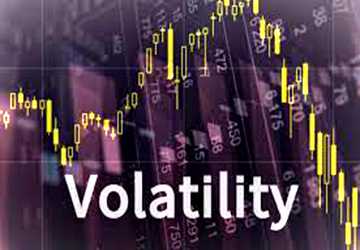Volatility is the range in which a stock's price rises or falls over a period of time.
Investors can accurately predict future volatility by looking at stock price movements, which often indicate increased risk.
Volatility calculation
Volatility assesses how much a stock's price can rise or fall and is calculated as the standard error of a stock's annualized return over a given time period.
A stock is considered highly volatile when its price fluctuates significantly between recent highs and lows in a short period of time. Conversely, low volatility is characterized by a gradual rise or fall in stock prices, or a general stability.
Historical volatility is estimated using a series of past market prices, while implied volatility is calculated using market prices for market-traded derivatives such as options.
What causes stock price volatility?
Factors that can increase volatility include:
Economic and political factors
Governments play an important role in regulating sectors, and their actions in trade agreements, policies and laws affect the economy. Also, anything that affects stock prices can trigger investor sentiment, including speeches and elections.
Economic data is important because investors usually react positively when the economy is doing well. Market performance can be influenced by monthly employment reports, inflation statistics, consumer spending data and GDP forecasts. Conversely, if it underperforms, the market could become more volatile.
Industry and Industry-Specific Factors
Volatility may be caused by particular events in a particular sector or industry. For example, a major weather event in a major oil-producing region could push up oil prices in the oil industry. As a result, companies involved in oil supplies may see their share prices rise because they are able to make a profit, while companies with high oil costs may see their shares fall.
Likewise, increased government intervention in specific industries could lead to lower stock values due to increased labor and compliance costs, which could impact future earnings growth.
Company achievements

Volatility is not necessarily market-wide; it can also apply to individual companies.
Positive news can boost investor confidence in a company, such as solid financial reports or exciting new products for customers. If more investors try to buy it, the extra demand could push shares higher.
On the other hand, when investors offset their holdings, a data breach, product recall, or CEO misconduct can negatively affect the stock price. This good or bad performance can also affect the larger market, depending on the size of the company.
There are opportunities in volatility.

Volatility is not necessarily a bad thing, as it can sometimes provide investors with an entry point they can take advantage of.
Investors optimistic about the market's long-term direction can take advantage of falling market volatility to buy more shares of their favorite companies at lower prices.
Investors can take advantage of the rapid rise in stocks by liquidating their holdings and investing their funds in other sectors with better investment potential.
Investors have the opportunity to earn substantial long-term returns by investing during times of market volatility.




